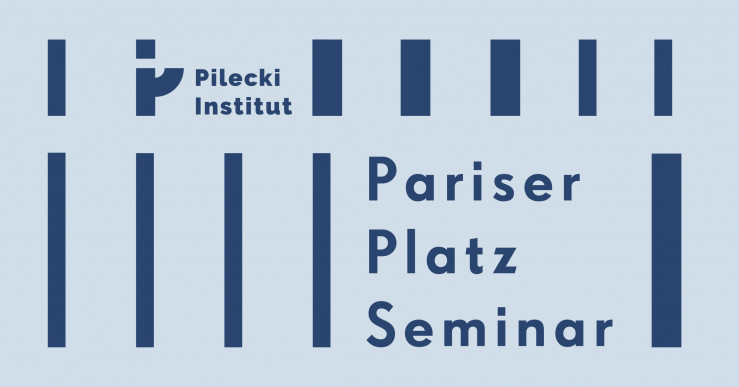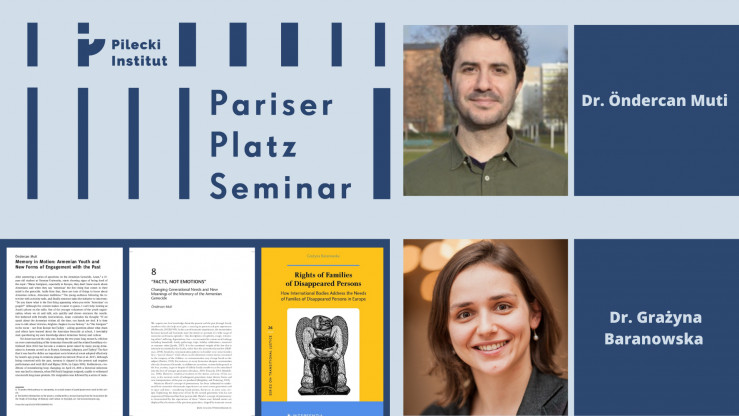Same old narratives? New meanings of the memory of the Armenian Genocide - Instytut Pileckiego
28.04.2022 () 18:00
Same old narratives? New meanings of the memory of the Armenian Genocide

Same old narratives? New meanings of the memory of the Armenian Genocide
28.04.22, 18.00 | Pariser Platz 4A, 10117 Berlin | Registration: events@pileckiinstitut.de
Lecture by Dr. Öndercan Muti (Humboldt University, Berlin)
Commentator: Dr. Grażyna Baranowska (Centre of Fundamental Rights, Hertie School, Berlin Institute of Legal Studies, Polish Academy of Sciences)
Moderator: Dr. Dominika Uczkiewicz (Centre for Totalitarian Studies, Pilecki Institute)
The event is part of the lecture series “Reflecting on Lemkin’s legacy. Contemporary relevance of the concept of genocide"

Abstract:
The transmission of the cultural heritage and knowledge about the past is rather a process of interpretation and re-narration according to present needs and future projections. To understand the re-interpretation and re-narration of the Armenian Genocide in different communities, I will analyze the results of a long-term research process carried out between 2015 and 2019 in Armenia, France, Germany, Lebanon, and Turkey. Based on various examples from these countries, I will try to answer how and why the remembrance of the Genocide is still important for young Armenians today. And finally, I will discuss “the duty of memory” of younger Armenian generations, while examining new and old styles of narrating the stories of loss and survival of family members.
Dr. Öndercan Muti has received his PhD in sociology at Humboldt University of Berlin, where he is also associate lecturer. For his dissertation, he has researched the collective memory of the Armenian Genocide, while focusing on concepts of generation, gender, and family. He has coordinated a civic education project “Open mind - transnational and cross-community against Islamophobia and hostility against Muslims” by La Red - Networking and Integration Association, funded by the Federal Ministry for Family Affairs, Senior Citizens, Women and Youth. Currently he is working as a project coordinator at the Population Europe, Max Planck Institute for Demographic Research, Berlin. He most recently published “Facts, not Emotions: Changing Generational Needs and New Meanings of the Memory of the Armenian Genocide” (in Family Memory: Practices, Transmissions and Uses in a Global Perspective, ed. Radmila Švaříčková Slabáková, Routledge, New York, 2021) and “Memory in Motion: Armenian Youth and New Forms of Engagement with the Past” (in Armenian and Jewish Experience between Expulsion and Destruction, eds. Sarah M. Ross and Regina Randhofer, De Gruyter Oldenbourg, 2021).
Dr. Grażyna Baranowska is currently an Assistant Professor at the Polish Academy of Sciences and Marie Skłodowska-Curie Postdoctoral Fellow at the Hertie School in Berlin. She has previously worked as a Postdoctoral Researcher on memory laws in Turkey within the EU-sponsored international consortium “MELA: Memory Laws in European and Comparative Perspective”. Her book on enforced disappearances in Europe was published by Intersentia in 2021. Next to her academic activities, she has worked as a Policy Advisor on enforced disappearances in the German Institute for Human Rights and is currently involved in drafting the General Comment on enforced disappearances and migration of the UN Committee on Enforced Disappearances.